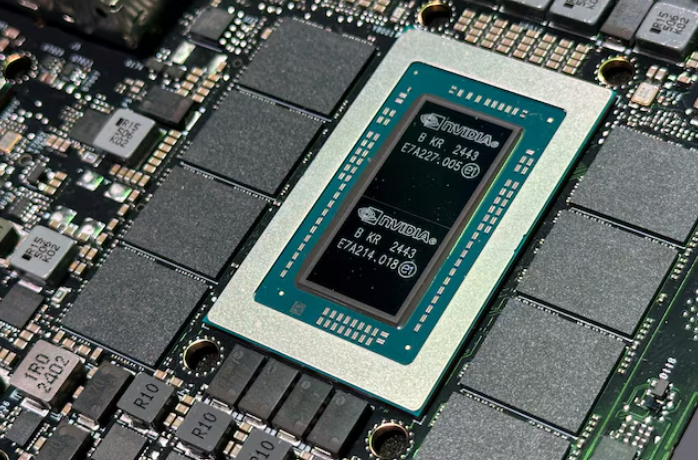
Recently, US President Trump publicly stated that Nvidia's latest Blackwell AI chip was not designed for "others." This statement not only reveals the US government's strategic intentions in the technology field but also highlights the extreme protectionist policies adopted by the US to maintain its technological hegemony in the current global technological competition.
The Blackwell chip, as Nvidia's revolutionary breakthrough in AI, boasts remarkable technological strength. Utilizing TSMC's 4nm process, it integrates 208 billion transistors, achieving an AI computing performance of up to 20 PetaFLOPS, four times that of its predecessor. Its innovative design includes a second-generation Transformer engine, 10TB/s inter-chip interconnect technology, and efficient inference capabilities supporting trillion-parameter models. These technological advantages make Blackwell a core engine driving the AI revolution, widely used in data centers, cloud computing, autonomous driving, and other fields. With this chip, Nvidia has further consolidated its monopoly in the global AI computing market.
The core of Trump's remarks lies in positioning the Blackwell chip as "US-exclusive technology." He emphasized that the chip's advanced nature makes it "super-advanced, the newest and greatest product in the world," and stated bluntly that "no one outside the US can currently manufacture it, and there will be no competitor within five years." Behind this stance lies the US government's deep anxiety about technological hegemony. The Trump administration views Blackwell as a key tool for maintaining national security, prohibiting unauthorized exports to countries like China, and even demanding that Nvidia hand over 15% of its revenue in China in exchange for export licenses. This move essentially weaponizes chip technology to curb the technological development of competitors.
However, this policy is triggering fierce internal debate within the US. The "security hawks," led by Democratic Senator Schumer, insist on a technological blockade against China, accusing Trump of "trade as a bargaining chip for national security." Meanwhile, Silicon Valley giants worry that excessive restrictions will force China to accelerate its independent research and development, ultimately harming the interests of American companies. Nvidia CEO Jensen Huang has repeatedly warned that cutting off the Chinese market would spur the rise of China's domestic chip industry, causing the US to lose the benefits of the world's largest AI market. This contradiction reflects the difficult balancing act the US faces between "technological monopoly" and "economic interests."
Trump's statement reflects, at a deeper level, America's attempt to control the global technological landscape. By restricting Blackwell chips to "American exclusive use," the US is trying to build a "moat" in the AI competition, preventing technology outflow from threatening its hegemonic position. However, this strategy may backfire: stringent export controls have spurred China to increase its investment in chip self-sufficiency, and technological breakthroughs by companies like Huawei are continuously narrowing the gap. Meanwhile, US allies are increasingly dissatisfied with the policy's inconsistency, and Washington's credibility in technological diplomacy continues to suffer.
The fate of Blackwell chips has transcended the technological realm, becoming a pawn in the great power game. Trump's "exclusivity" rhetoric not only reflects America's obsession with technological hegemony but also exposes its anxiety—in today's increasingly close globalized technological collaboration, can unilateral blockades truly maintain an advantage? The answer may be as Huang Renxun said: only open innovation and cooperation can truly drive the progress of human AI technology. Confining technology to the cage of geopolitics will ultimately hinder the progress of human civilization as a whole.

According to a recent report by Rich Asplund, a columnist for Barchart, the global sugar market is currently experiencing a complex and profound supply-demand game.
According to a recent report by Rich Asplund, a columnist f…
On January 13th local time, the three major US stock indice…
Recently, the 2026 edition of the MIT Technology Review lis…
On January 15, 2026, the US military announced the seizure …
At the 2026 J.P. Morgan Healthcare Conference, a joint anno…
For much of 2025, the market was rethinking whether the dol…